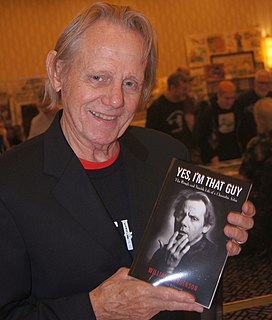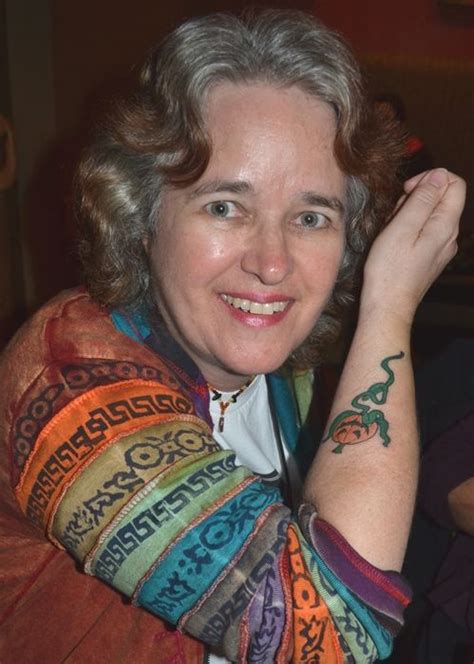A Quote by Mary Oliver
I read the way a person might swim, to save his or her life. I wrote that way too.
Related Quotes
Very frankly, I am opposed to people being programmed by others. My whole approach in broadcasting has always been 'You are an important person just the way you are. You can make healthy decisions.' Maybe I'm going on too long, but I just feel that anything that allows a person to be more active in the control of his or her life, in a healthy way, is important.
He wanted to hear her concerns and alleviate them, he wanted to hold her and kiss her and convince her that he would find a way to make their relationship work, no matter how hard that might be. He wanted to to make her hear his words: that he couldn't imagine a lofe without her,that his feelings for her were real. But most of all, he wanted to reassure himself that she felt the same way about him.
When Vanity kissed Vanity, a hundred happy Junes ago, he pondered o'er her breathlessly, and, that all men might ever know, he rhymed her eyes with life and death: "Thru Time I'll save my love!" he said. . . yet Beauty vanished with his breath, and, with her lovers, she was dead. . . -Ever his wit and not her eyes, ever his art and not her hair: "Who'd learn a trick in rhyme, be wise and pause before his sonnet there". . . So all my words, however true, might sing you to a thousandth June, and no one ever know that you were Beauty for an afternoon.
I always think about Katharine Graham - she was the publisher of The Washington Post. In her autobiography she talks about the way her parents met. Her father was, I think, in New York just walking by on his way home and looked into a store and saw the lady that became his wife. It was just pure luck. And she said that it once again reminds her of the role that luck and chance play in our life. I really believe that, too.
To live his life in his own way, to call his house his castle, to enjoy the fruits of his own labour, to educate his children as his conscience directs, to save for their prosperity after his death -- these are wishes deeply ingrained in civilised man. Their realization is almost as necessary to our virtues as to our happiness. From their total frustration disastrous results both moral and psychological might follow.
What you and I might rate as an absolute disaster, God may rate as a pimple-level problem that will pass. He views your life the way you view a movie after you've read the book. When something bad happens, you feel the air sucked out of the theater. Everyone else gasps at the crisis on the screen. Not you. Why? You've read the book. You know how the good guy gets out of the tight spot. God views your life with the same confidence. He's not only read your story...he wrote it.
He wants her in his bedroom. And not in that way — no girl has ever been in his bedroom that way. It is his private space, his sanctuary. But he wants Clary there. He wants her to see him, the reality of him, not the image he shows the world. He wants to lie down on the bed with her and have her curl into him. He wants to hold her as she breathes softly through the night; to see her as no one else sees her: vulnerable and asleep. To see her and to be seen.
It's like he has emotional amnesia... I think you have to accept that the person you knew isn't there at the moment. I was witness to how much he loved you. I have the photos. This isn't the person we knew. I don't recognize this person. He's shed his skin." Her heart is broken too. She has to say the thing that will give me back my life. She draws on every reserve. I see how much it hurts her and it hurts me too. I came from her joy and her pain, I lived in it and I live in it now.
She opened her mouth to answer, but he was already kissing her. She had kissed him so many times—soft gentle kisses, hard and desperate ones, brief brushes of the lips that said good-bye, and kisses that seemed to go on for hours—and this was no different. The way the memory of someone who had once lived in a house might linger even after they were gone, like a sort of psychic imprint, her body remembered Jace. Remembered the way he tasted, the slant of his mouth over hers, his scars under her fingers, the shape of his body under her hands.
The motion picture is like a picture of a lady in a half-piece bathing suit. If she wore a few more clothes, you might be intrigued. If she wore no clothes at all, you might be shocked. But the way it is, you are occupied with noticing that her knees are too bony and that her toenails are too large. The modern film tries too hard to be real. Its techniques of illusion are so perfect that it requires no contribution from the audience but a mouthful of popcorn.
Because no, I didn’t push her away. I didn’t add to her pain or do anything to hurt her. Instead, I left her alone in that room. The only person who might’ve been able to reach out and save her from herself. To pull her back from wherever she was heading. I did what she asked and I left. When I should have stayed.






































